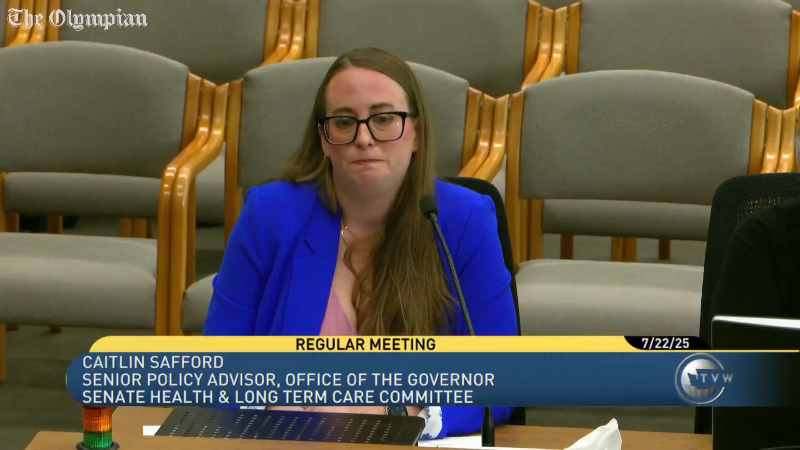Storm on the Horizon for WA as Federal Health Care Cuts Loom

Impact of Federal Health-Care Changes on Washington State
Washington state is preparing for significant changes in its health-care system as a result of recent federal legislation. State lawmakers were informed during a recent committee meeting that the individual marketplace will experience coverage losses starting early next year, with at least 80,000 residents likely to be priced out of their current plans beginning in January.
These changes are attributed to a combination of new federal rules and potential expiration of enhanced advance premium tax credits. The Senate Health and Long-Term Care Committee heard from Caitlin Safford, senior policy adviser with the Office of the Governor, who warned that the impact would be immediate and widespread.
“The uninsured rate will take an immediate hit, and it will also affect our providers,” Safford said. “We may see some counties without individual market coverage, which will be really tough.”
The looming challenges are linked to the One Big Beautiful Bill Act, a controversial piece of legislation that has already sparked concern among state officials. Safford emphasized that the state is bracing for “pretty significant Medicaid hits” in the coming year, with providers preparing for difficult decisions about how to structure the health-care system.
Federal Funding Cuts and Their Consequences
The federal tax and spending bill signed into law by President Donald Trump on July 4 has raised alarms about deep cuts to the social safety net, including food-stamp benefits and Medicaid. These programs provide essential support for low-income individuals, and the expected reductions could have far-reaching consequences.
State officials are still working to fully understand the implications of these changes. However, it is clear that the upcoming legislative session will need to address the fallout. Safford noted that lawmakers will have only a short time—60 days—to respond to constituent concerns, particularly those related to the individual market.
“Premium increases are likely to be a major concern,” she said. “We’ll have to figure this out fast.”
Political Divisions Over Medicaid Cuts
The Medicaid cuts have drawn sharp criticism from Democrats, who describe them as “cruel.” They argue that the changes will disproportionately affect vulnerable populations. On the other hand, Republicans, including Senate Minority Leader John Braun, defend the measure as a way to protect the program by rooting out fraud and ensuring that benefits reach those most in need.
Safford pointed out that when the Affordable Care Act was implemented, the state had about three and a half years to prepare. Now, it has roughly a year and a half to make critical decisions about the future of the health-care system.
Uncertainty and Long-Term Effects
Dr. Charissa Fotinos, director of the state Health Care Authority’s Medicaid division, expressed her concerns during the presentation. She described the situation as painful and uncertain, noting that estimates vary widely regarding how many people will lose coverage and how much the state will lose in federal funding over the next decade.
According to an accompanying slideshow, between 200,000 and 320,000 Washington residents could lose Medicaid coverage. From now until 2034, the state is expected to lose billions in federal funding.
Gov. Bob Ferguson has pledged to fill an $11 million funding gap if federal dollars are restricted under the new law, but the long-term effects remain unclear.
Work Requirements and Access to Care
Starting in December 2026, adults aged 19 to 65 receiving full Medicaid coverage will be required to meet work or training requirements, including 80 hours per month of participation in community engagement activities. Fotinos noted that about 64% of Medicaid recipients nationally are already employed, raising concerns about the feasibility of these requirements.
If these burdensome conditions are enforced, some individuals may delay seeking care until they face emergencies, placing additional strain on hospitals already dealing with federal funding cuts. Fotinos described the situation as a “perfect storm brewing.”
As the state moves forward, officials and providers will need to navigate these challenges carefully, ensuring that the health-care system remains accessible and sustainable for all residents.
Post a Comment for "Storm on the Horizon for WA as Federal Health Care Cuts Loom"
Post a Comment